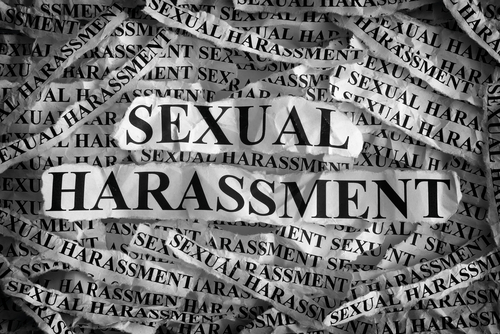Like all good legal questions, the answer to whether a nondisclosure agreement (NDA) is enforceable in sexual harassment cases is “it depends.” An NDA or confidentiality agreement is a signed legal document that restricts one party from sharing certain information with others. In the 1940s, NDAs were originally used in maritime law, and in the 1980s, they were commonly used in the tech industry to protect trade secrets. Since then, NDAs have gradually crept into a wider variety of employment contracts and become normalized in settling disputes about sexual misconduct and other forms of discrimination. In recent years, however, there has been increased concern over their ability to silence victims of sexual harassment and discrimination. This has resulted in a global wave of legislation and case law addressing the issue and changing the landscape of NDA enforceability. Ultimately, NDAs are still enforceable but subject to certain limitations.
Speak Out Act
The federal Speak Out Act signed by President Joe Biden on December 7, 2022, prohibits the enforceability of nondisclosure and nondisparagement clauses concerning sexual misconduct entered into by an employee “before the dispute arises.” The impetus for the law was to prevent the use of NDAs to cover up repeated misconduct (including sexual harassment and/or assault) by high-profile employees, thereby preventing victims from talking about the misconduct publicly.
Notably, the Speak Out Act—which was intended to prevent covering up misconduct—applies only to nondisclosure and nondisparagement agreements signed before a dispute arises, not after. Thus, although the Act prohibits employers from having employees sign “blanket” NDAs as a condition of their employment, it doesn’t apply to an NDA that was agreed to after the harassment occurred as part of a settlement agreement.
State Laws
Several states—including Arizona, Texas, and California—also have limitations on NDAs. In Arizona, a confidentiality agreement may not prohibit an employee from responding to law enforcement or making a statement in a criminal proceeding not initiated by that party in relation to a sexual offense under Ariz. Rev. Stat. §§ 13-1401 to 13-1428 or an obscenity under. or Ariz. Rev. Stat. §§ 13-3501 to 13-3513. Ariz. Rev. Stat. § 12-720. California, Illinois, Maine, New Jersey, New York, Oregon, and Washington recently passed laws banning the use of NDAs in cases of sexual harassment or sex discrimination.
Additionally, you should be knowledgeable about the implications of the Ending Forced Arbitration of Sexual Assault and Sexual Harassment Act of 2021 (EFAA), which amended the Federal Arbitration Act (FAA) to precluded the mandatory arbitration of sexual harassment and sexual assault cases that arise or accrue on or after March 3, 2022. In other words, employers using mandatory arbitration programs must carve out sexual harassment and sexual assault disputes from the list of claims employees must arbitrate and instead give employees the option to pursue those claims through litigation. Case law following the EFAA has examined what constitutes a dispute, when does it arise, and whether sexual assault and harassment claims may be separated from other employment-related claims that are subject to mandatory arbitration.
Bottom Line
Ultimately, none of the recent developments directly precludes you from resolving sexual harassment claims through settlement agreements that include NDAs. However, you should be mindful of the limits discussed above and the continued legislation in this area of the law. You should also examine existing confidentiality agreements to ensure compliance with the recent developments in the law.
Juliet S. Burgess is an Arizona attorney specializing in employment law, dispute resolution, and commercial litigation. For more information about the Burgess Law Group please visit www.theburgesslawgroup.com.

